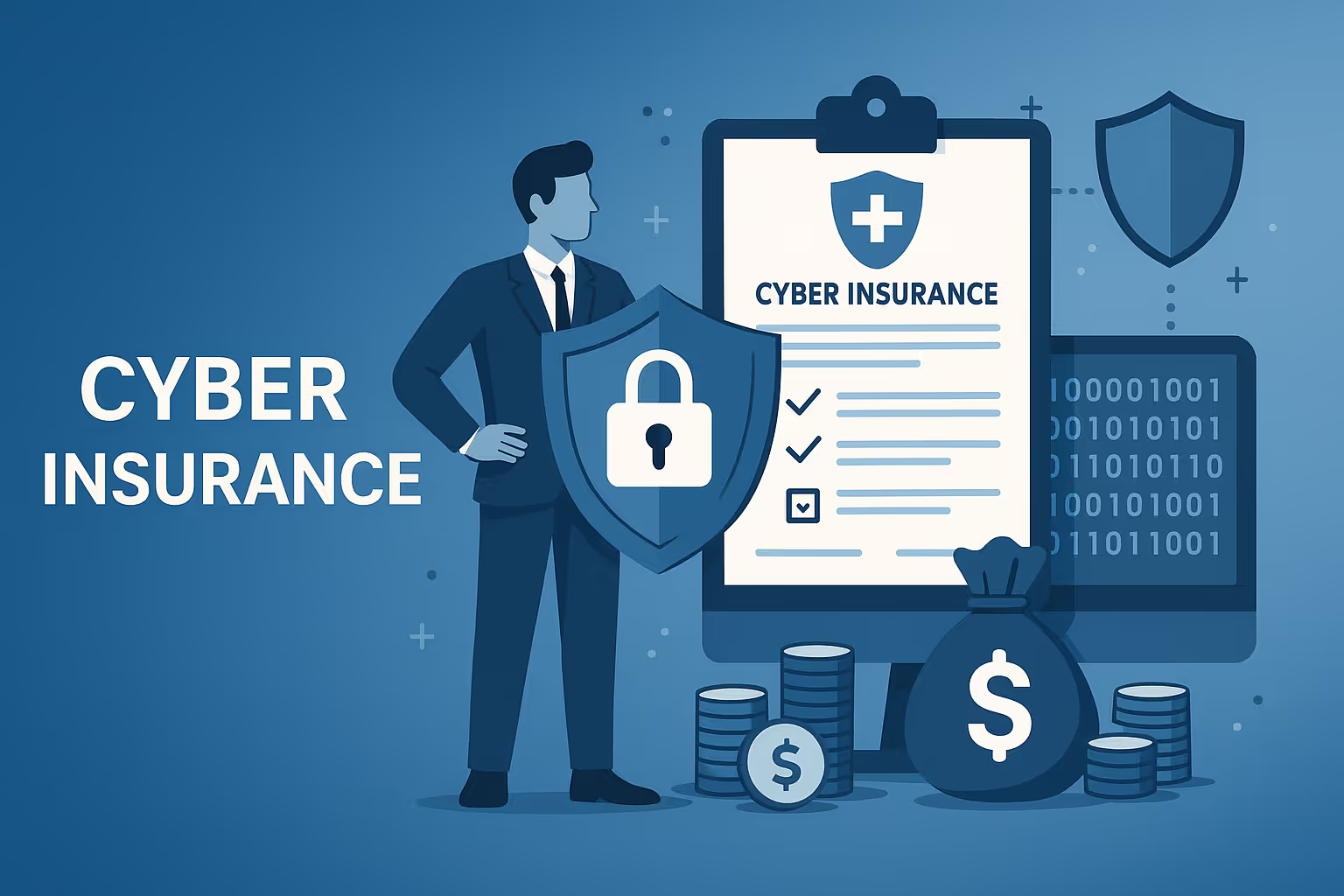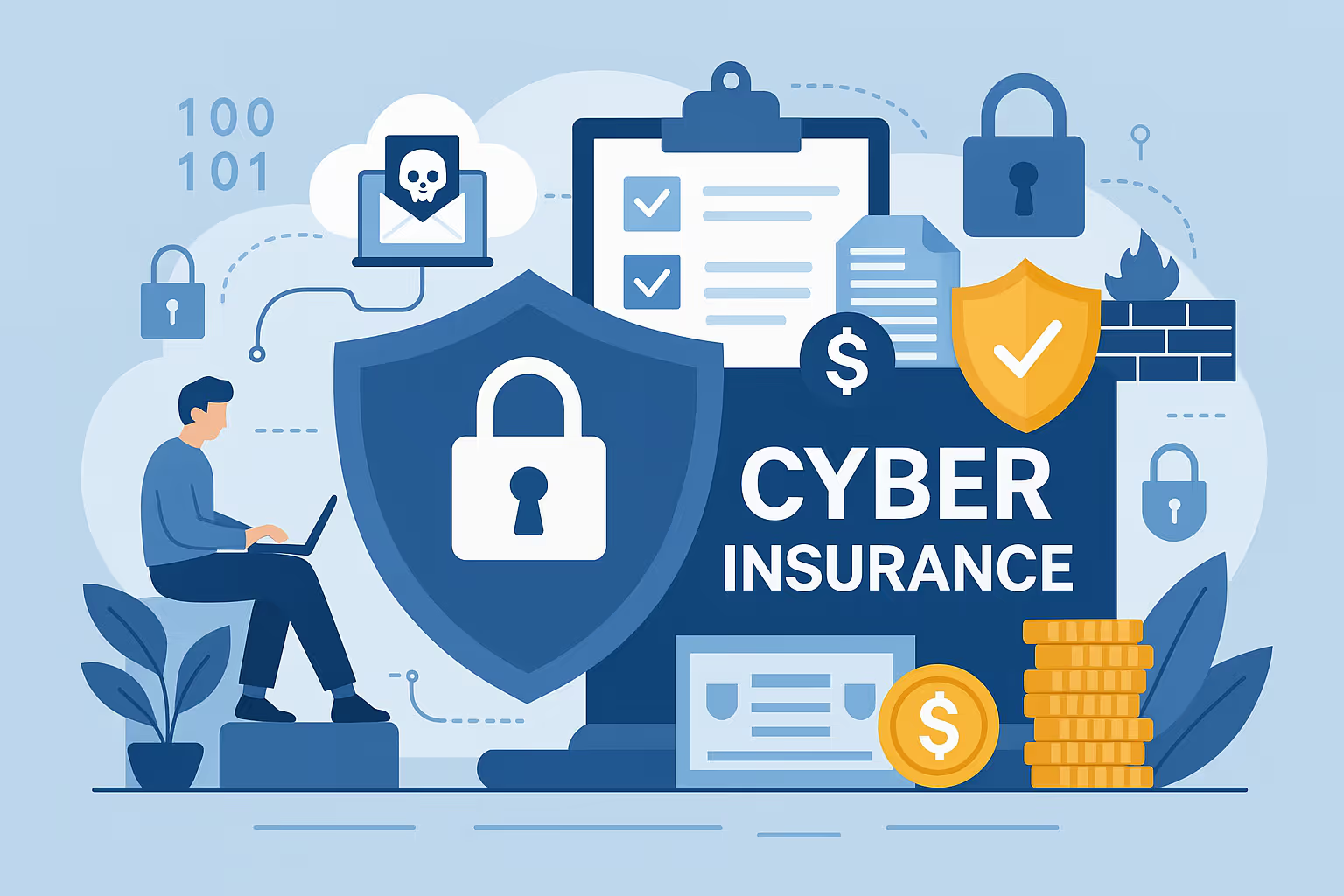
How to get...
Conduct a comprehensive risk assessment tailored to the Pharmaceutical / Biotech / Medical Devices sector. Engage cybersecurity experts with industry-specific knowledge to evaluate vulnerabilities in digital assets, confidential research data, and compliance controls, especially considering FDA and HIPAA standards.
Compile essential evidence of your cybersecurity practices. Prepare detailed records that portray your security posture and risk management measures specifically relevant to pharmaceutical, biotech, and medical device operations.
Research insurers and brokers who specialize in cyber insurance for the Pharmaceutical / Biotech / Medical Devices industry. Look for providers that understand the complexities of regulated environments and offer tailored solutions.
Submit your documentation and details to the selected insurer for underwriting. Underwriters will review your cybersecurity measures, risk assessments, and incident histories. This step naturally involves discussions on how to get cyber insurance for Pharmaceutical / Biotech / Medical Devices, ensuring that every detail is industry-specific.
Engage in detailed negotiations to align policy terms with your operational realities. Review policy limits, deductibles, incident response support, and included cyber risk coverages to ensure they match the distinct needs of the Pharmaceutical / Biotech / Medical Devices environment.
After securing your policy, continuously update your cybersecurity measures and supporting documentation. Scheduled reviews and compliance audits help maintain eligibility for coverage renewals and can lead to cost reductions in premiums.

Who provides...


Why need...
Pharmaceutical, Biotech, and Medical Devices companies in the United States face unique cyber risks that stem from their highly regulated environment, reliance on cutting-edge research, and sensitive patient data. These organizations are prime targets for hackers due to the valuable intellectual property involved in drug discovery and the life-saving devices they produce.
Cyber insurance for Pharmaceutical / Biotech / Medical Devices in the United States plays a crucial role in mitigating these risks. It offers comprehensive coverage by providing financial backup for incident response, legal fees, and regulatory fines. Moreover, it supports the recovery process, enabling companies to invest in improved cybersecurity infrastructure and maintain stakeholder trust even after an attack.
By opting for cyber insurance for Pharmaceutical / Biotech / Medical Devices, organizations ensure they have a safety net against unforeseen cyber threats, allowing them to focus on research, development, and patient care while safeguarding their intellectual property and financial stability.
Cyber insurance coverage for Pharmaceutical / Biotech / Medical Devices in this area addresses liability arising from unauthorized access or disclosure of sensitive data, including patient records, proprietary research, and regulatory filings. It covers costs for breach notification, forensic investigation, credit monitoring, and legal fees.
The cyber insurance coverage for Pharmaceutical / Biotech / Medical Devices extends to losses incurred from operational disruptions following a cyber event. This includes lost revenue, increased operational costs, and expenses for restoring systems and data.
This coverage from cyber insurance coverage for Pharmaceutical / Biotech / Medical Devices safeguards organizations against losses from ransomware attacks and cyber extortion attempts. It includes negotiation support, ransom payments (where legal), and technical assistance to lift the threat.
The cyber insurance coverage for Pharmaceutical / Biotech / Medical Devices includes provisions for regulatory defense, covering legal expenses, fines, and penalties related to non-compliance issues arising after a cyber incident. This is particularly critical in a highly regulated environment.
Build Security with OCD Tech That Meets the Standard — and Moves You Forward
Contact Us
US Pharma/Biotech/MedDev firms need strong cyber controls for insurance. Underwriters check measures to protect R&D & patient data.
Secure Your Business with Expert Cybersecurity & Compliance Today
Contact Us


Differences by State...

Compliance & Frameworks...
Ensuring adherence to multiple cybersecurity frameworks is vital when obtaining cyber insurance for Pharmaceutical / Biotech / Medical Devices companies. These frameworks not only enhance protection but also directly influence policy eligibility, underwriting, and premium costs.
These frameworks and regulations shape cyber insurance policies by defining clear security benchmarks. Compliance improves risk posture and can lead to lower premiums and enhanced coverage terms. Insurers evaluate how well a company follows these standards, and a strong compliance framework often translates to better pricing and eligibility for comprehensive cyber insurance solutions.

Audit. Security. Assurance.
IT Audit | Cybersecurity | IT Assurance | IT Security Consultants – OCD Tech is a technology consulting firm serving the IT security and consulting needs of businesses in Boston (MA), Braintree (MA) and across New England. We primarily serve Fortune 500 companies including auto dealers, financial institutions, higher education, government contractors, and not-for-profit organizations with SOC 2 reporting, CMMC readiness, IT Security Audits, Penetration Testing and Vulnerability Assessments. We also provide dark web monitoring, DFARS compliance, and IT general controls review.
Contact Info
.svg)
OCD Tech
.svg)
25 BHOP, Suite 407, Braintree MA, 02184
.svg)
844-623-8324
.svg)
https://ocd-tech.com
Follow Us
Videos
Check Out the Latest Videos From OCD Tech!
Services
SOC Reporting Services
– SOC 2 ® Readiness Assessment
– SOC 2 ®
– SOC 3 ®
– SOC for Cybersecurity ®
IT Advisory Services
– IT Vulnerability Assessment
– Penetration Testing
– Privileged Access Management
– Social Engineering
– WISP
– General IT Controls Review
IT Government Compliance Services
– CMMC
– DFARS Compliance
– FTC Safeguards vCISO